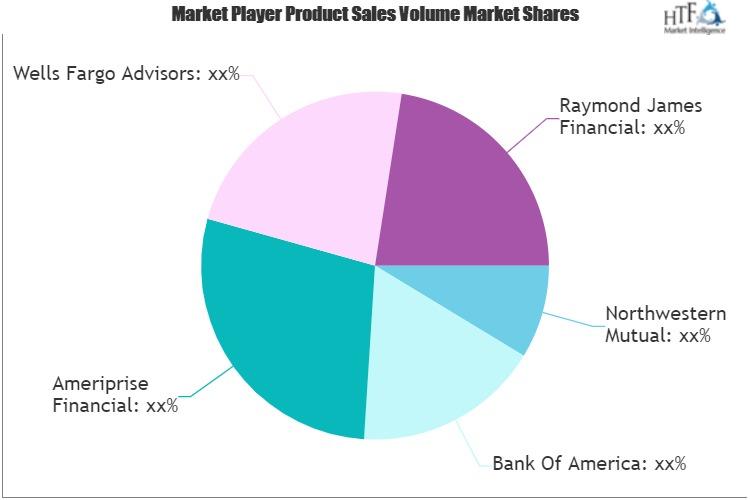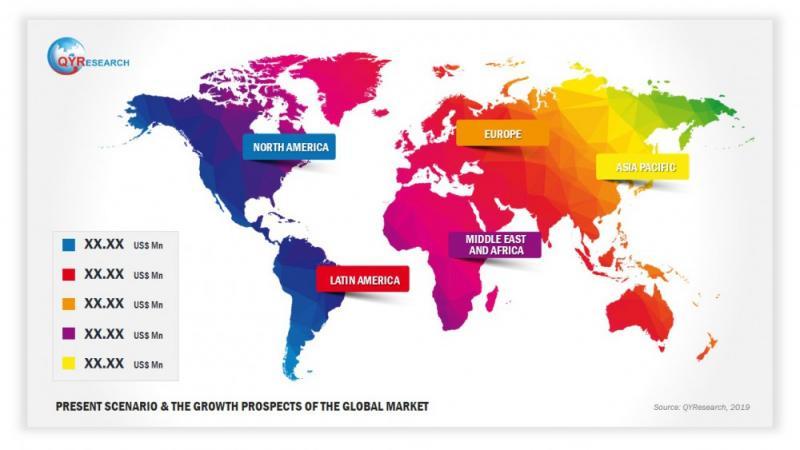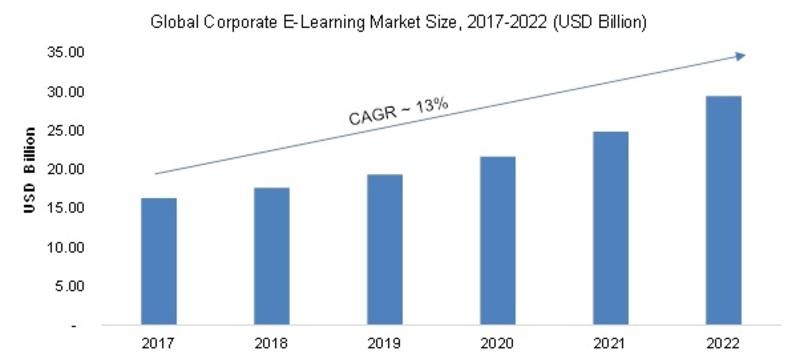Press release
Europe Leads Gasoline Particulate Filter Market with 40.1% Share, Backed by Strict Emission Standards
The demand for gasoline particulate filters (GPFs) has significantly surged in recent years, with Europe taking the lead by holding a 40.1% share of the global market. This substantial market share is largely attributed to Europe's rigorous emissions regulations, which are among the strictest worldwide. These policies are in place to combat climate change and reduce the impact of air pollution, leading to a rapid adoption of advanced filtering technologies in gasoline vehicles.
𝐑𝐞𝐪𝐮𝐞𝐬𝐭 𝐟𝐨𝐫 𝐒𝐚𝐦𝐩𝐥𝐞: https://www.persistencemarketresearch.com/samples/34875
The gasoline particulate filter (GPF) market is projected to grow from USD 1.9 billion in 2024 to USD 4.8 billion by 2031, with a robust CAGR of 14.5%. This growth is driven by strict emission regulations and a rising demand for eco-friendly automotive technologies, particularly in hybrid and electric vehicles. Europe, accounting for 40.1% of the market in 2024, leads due to stringent standards, while North America is expected to capture 31%, fueled by investments in clean technologies. Cordierite filters are set to dominate with a 66.94% share, especially in passenger cars, as consumer demand for advanced emissions controls rises.
𝐓𝐡𝐞 𝐑𝐨𝐥𝐞 𝐨𝐟 𝐒𝐭𝐫𝐢𝐧𝐠𝐞𝐧𝐭 𝐄𝐦𝐢𝐬𝐬𝐢𝐨𝐧 𝐒𝐭𝐚𝐧𝐝𝐚𝐫𝐝𝐬 𝐢𝐧 𝐄𝐮𝐫𝐨𝐩𝐞'𝐬 𝐌𝐚𝐫𝐤𝐞𝐭 𝐃𝐨𝐦𝐢𝐧𝐚𝐧𝐜𝐞
Europe's commitment to environmental sustainability has fostered an ecosystem where regulatory bodies continuously strive to minimize vehicle emissions. The European Union (EU) has implemented Euro 6 standards, setting limits on carbon monoxide (CO), nitrogen oxides (NOx), hydrocarbons, and particulate matter (PM) emissions for vehicles. The Euro 6 standard mandates that car manufacturers integrate GPFs into their vehicles to filter out harmful particulate emissions.
In response, automakers and filter manufacturers in Europe have ramped up production of GPFs to meet this regulatory demand. These filters trap and reduce particulate matter, including fine dust particles generated by gasoline direct injection (GDI) engines. As Europe pushes for even stricter standards, including plans for Euro 7 regulations, the market for GPFs is projected to expand further, cementing Europe's leading position.
𝐓𝐞𝐜𝐡𝐧𝐨𝐥𝐨𝐠𝐲 𝐀𝐝𝐯𝐚𝐧𝐜𝐞𝐦𝐞𝐧𝐭𝐬 𝐀𝐜𝐜𝐞𝐥𝐞𝐫𝐚𝐭𝐢𝐧𝐠 𝐆𝐏𝐅 𝐀𝐝𝐨𝐩𝐭𝐢𝐨𝐧
Technological innovations have enabled the development of highly efficient GPFs that comply with Europe's stringent standards. Advanced GPFs can filter up to 90% of particulate matter from vehicle emissions, helping automakers meet regulatory demands without compromising vehicle performance. Innovations such as coated and uncoated GPFs have expanded market options, allowing for better integration within vehicle exhaust systems.
Several major automotive manufacturers have invested heavily in GPF technology to ensure compliance with environmental regulations while maintaining vehicle performance and fuel efficiency. This focus on advanced technology has positioned Europe as a leader in both the adoption and development of cutting-edge particulate filter solutions.
𝐃𝐞𝐦𝐚𝐧𝐝 𝐟𝐨𝐫 𝐂𝐥𝐞𝐚𝐧𝐞𝐫 𝐀𝐢𝐫 𝐃𝐫𝐢𝐯𝐞𝐬 𝐌𝐚𝐫𝐤𝐞𝐭 𝐄𝐱𝐩𝐚𝐧𝐬𝐢𝐨𝐧
Increasing urbanization, population growth, and vehicle ownership have raised concerns about air quality in European cities. Air pollution from vehicles is a major contributor to health risks, prompting public demand for cleaner air. With reports indicating that transport accounts for a significant portion of urban pollution, European governments have introduced incentives and regulations aimed at reducing vehicle emissions.
Public pressure and government initiatives have incentivized the adoption of GPFs, leading to a rise in their production and installation across Europe. As governments and cities continue to combat pollution, the demand for GPFs in urban and suburban areas is expected to grow, expanding the market even further.
𝐀𝐮𝐭𝐨𝐦𝐚𝐤𝐞𝐫 𝐚𝐧𝐝 𝐆𝐨𝐯𝐞𝐫𝐧𝐦𝐞𝐧𝐭 𝐂𝐨𝐥𝐥𝐚𝐛𝐨𝐫𝐚𝐭𝐢𝐨𝐧: 𝐊𝐞𝐲 𝐭𝐨 𝐌𝐚𝐫𝐤𝐞𝐭 𝐆𝐫𝐨𝐰𝐭𝐡
The growth of Europe's GPF market has been supported by collaboration between automakers and government bodies. Many European governments have implemented stringent policies that require automakers to install GPFs in vehicles equipped with gasoline engines. In addition, they provide subsidies and incentives to manufacturers adopting environmentally friendly technologies. This collaboration not only accelerates GPF adoption but also helps automakers manage the costs associated with compliance.
Government support is crucial for small- and medium-sized automakers who may struggle to adapt to new regulations due to financial constraints. By providing financial assistance and setting clear emission standards, governments in Europe are ensuring that automakers, regardless of their size, can integrate GPFs into their production lines. This collaborative approach has further strengthened Europe's leading position in the GPF market.
𝐑𝐢𝐬𝐢𝐧𝐠 𝐏𝐨𝐩𝐮𝐥𝐚𝐫𝐢𝐭𝐲 𝐨𝐟 𝐆𝐚𝐬𝐨𝐥𝐢𝐧𝐞 𝐃𝐢𝐫𝐞𝐜𝐭 𝐈𝐧𝐣𝐞𝐜𝐭𝐢𝐨𝐧 (𝐆𝐃𝐈) 𝐄𝐧𝐠𝐢𝐧𝐞𝐬
Gasoline Direct Injection (GDI) engines have gained popularity among European car manufacturers due to their fuel efficiency and improved performance. However, these engines also produce higher levels of particulate emissions, necessitating the use of GPFs to comply with emission standards. The increasing adoption of GDI engines has therefore directly contributed to the rising demand for GPFs in Europe.
As GDI engines become standard in many new vehicles, GPFs are essential to meet emission regulations. With the European market rapidly transitioning to GDI technology, the demand for GPFs is expected to grow in tandem. The integration of GPFs in GDI engines is proving to be an effective solution for automakers to balance environmental responsibility with consumer demands for performance.
𝐄𝐜𝐨𝐧𝐨𝐦𝐢𝐜 𝐚𝐧𝐝 𝐄𝐧𝐯𝐢𝐫𝐨𝐧𝐦𝐞𝐧𝐭𝐚𝐥 𝐁𝐞𝐧𝐞𝐟𝐢𝐭𝐬 𝐨𝐟 𝐆𝐏𝐅 𝐀𝐝𝐨𝐩𝐭𝐢𝐨𝐧
The adoption of GPF technology presents several economic and environmental benefits for European nations. On the environmental front, GPFs contribute significantly to reducing the level of harmful particulates in the air, improving public health outcomes and helping nations meet their climate goals. Economically, the production of GPFs has stimulated job creation within Europe's automotive sector, creating employment opportunities in manufacturing, research, and development.
Furthermore, as European automotive brands implement GPF technology, they enhance their global competitiveness by offering vehicles that meet international emission standards. This positioning not only benefits Europe's economy but also aligns with consumer preferences for eco-friendly vehicles. Consequently, Europe's proactive approach to GPF adoption has fostered a win-win situation where both environmental and economic interests are met.
𝐅𝐮𝐭𝐮𝐫𝐞 𝐎𝐮𝐭𝐥𝐨𝐨𝐤: 𝐄𝐮𝐫𝐨𝐩𝐞'𝐬 𝐏𝐚𝐭𝐡 𝐭𝐨 𝐂𝐨𝐧𝐭𝐢𝐧𝐮𝐞𝐝 𝐆𝐏𝐅 𝐌𝐚𝐫𝐤𝐞𝐭 𝐋𝐞𝐚𝐝𝐞𝐫𝐬𝐡𝐢𝐩
Looking ahead, Europe is expected to retain its leadership in the GPF market due to a combination of regulatory pressures, technological advancements, and strong public support for cleaner air initiatives. The anticipated Euro 7 emission standards, which are expected to be even stricter than Euro 6, will likely drive further demand for advanced GPFs. Automakers are already preparing for these upcoming regulations, indicating a continued investment in GPF technology.
Moreover, Europe's strong focus on reducing carbon emissions aligns with the global push toward sustainability. This commitment to eco-friendly practices positions Europe to continue leading in the GPF market, setting a benchmark for other regions to follow. As the global community moves toward achieving climate goals, Europe's leadership in the GPF sector is likely to inspire similar efforts worldwide, further cementing its market dominance.
𝐂𝐨𝐧𝐜𝐥𝐮𝐬𝐢𝐨𝐧: 𝐄𝐮𝐫𝐨𝐩𝐞'𝐬 𝐂𝐨𝐦𝐦𝐢𝐭𝐦𝐞𝐧𝐭 𝐭𝐨 𝐂𝐥𝐞𝐚𝐧 𝐀𝐢𝐫 𝐅𝐮𝐞𝐥𝐬 𝐆𝐏𝐅 𝐌𝐚𝐫𝐤𝐞𝐭 𝐆𝐫𝐨𝐰𝐭𝐡
Europe's strict emission standards, technological advancements, and collaborative approach between governments and automakers have propelled it to the forefront of the global GPF market. The continent's dedication to environmental sustainability is clear in its policies and practices, making it a model region for reducing vehicular emissions. As Europe prepares for the implementation of Euro 7 standards, the GPF market is poised for continued growth, reinforcing Europe's status as a leader in clean automotive technology. The region's proactive stance on emissions reduction serves as an inspiration for other parts of the world, highlighting the role of GPFs in creating a healthier and more sustainable future.
𝐂𝐨𝐧𝐭𝐚𝐜𝐭 𝐔𝐬:
Persistence Market Research
G04 Golden Mile House, Clayponds Lane
Brentford, London, TW8 0GU UK
USA Phone: +1 646-878-6329
UK Phone: +44 203-837-5656
Email: sales@persistencemarketresearch.com
Web: https://www.persistencemarketresearch.com
𝐀𝐛𝐨𝐮𝐭 𝐏𝐞𝐫𝐬𝐢𝐬𝐭𝐞𝐧𝐜𝐞 𝐌𝐚𝐫𝐤𝐞𝐭 𝐑𝐞𝐬𝐞𝐚𝐫𝐜𝐡:
At Persistence Market Research, we specialize in creating research studies that serve as strategic tools for driving business growth. Established as a proprietary firm in 2012, we have evolved into a registered company in England and Wales in 2023 under the name Persistence Research & Consultancy Services Ltd. With a solid foundation, we have completed over 3600 custom and syndicate market research projects, and delivered more than 2700 projects for other leading market research companies' clients.
Our approach combines traditional market research methods with modern tools to offer comprehensive research solutions. With a decade of experience, we pride ourselves on deriving actionable insights from data to help businesses stay ahead of the competition. Our client base spans multinational corporations, leading consulting firms, investment funds, and government departments. A significant portion of our sales comes from repeat clients, a testament to the value and trust we've built over the years.
𝐑𝐞𝐪𝐮𝐞𝐬𝐭 𝐟𝐨𝐫 𝐒𝐚𝐦𝐩𝐥𝐞: https://www.persistencemarketresearch.com/samples/34875
The gasoline particulate filter (GPF) market is projected to grow from USD 1.9 billion in 2024 to USD 4.8 billion by 2031, with a robust CAGR of 14.5%. This growth is driven by strict emission regulations and a rising demand for eco-friendly automotive technologies, particularly in hybrid and electric vehicles. Europe, accounting for 40.1% of the market in 2024, leads due to stringent standards, while North America is expected to capture 31%, fueled by investments in clean technologies. Cordierite filters are set to dominate with a 66.94% share, especially in passenger cars, as consumer demand for advanced emissions controls rises.
𝐓𝐡𝐞 𝐑𝐨𝐥𝐞 𝐨𝐟 𝐒𝐭𝐫𝐢𝐧𝐠𝐞𝐧𝐭 𝐄𝐦𝐢𝐬𝐬𝐢𝐨𝐧 𝐒𝐭𝐚𝐧𝐝𝐚𝐫𝐝𝐬 𝐢𝐧 𝐄𝐮𝐫𝐨𝐩𝐞'𝐬 𝐌𝐚𝐫𝐤𝐞𝐭 𝐃𝐨𝐦𝐢𝐧𝐚𝐧𝐜𝐞
Europe's commitment to environmental sustainability has fostered an ecosystem where regulatory bodies continuously strive to minimize vehicle emissions. The European Union (EU) has implemented Euro 6 standards, setting limits on carbon monoxide (CO), nitrogen oxides (NOx), hydrocarbons, and particulate matter (PM) emissions for vehicles. The Euro 6 standard mandates that car manufacturers integrate GPFs into their vehicles to filter out harmful particulate emissions.
In response, automakers and filter manufacturers in Europe have ramped up production of GPFs to meet this regulatory demand. These filters trap and reduce particulate matter, including fine dust particles generated by gasoline direct injection (GDI) engines. As Europe pushes for even stricter standards, including plans for Euro 7 regulations, the market for GPFs is projected to expand further, cementing Europe's leading position.
𝐓𝐞𝐜𝐡𝐧𝐨𝐥𝐨𝐠𝐲 𝐀𝐝𝐯𝐚𝐧𝐜𝐞𝐦𝐞𝐧𝐭𝐬 𝐀𝐜𝐜𝐞𝐥𝐞𝐫𝐚𝐭𝐢𝐧𝐠 𝐆𝐏𝐅 𝐀𝐝𝐨𝐩𝐭𝐢𝐨𝐧
Technological innovations have enabled the development of highly efficient GPFs that comply with Europe's stringent standards. Advanced GPFs can filter up to 90% of particulate matter from vehicle emissions, helping automakers meet regulatory demands without compromising vehicle performance. Innovations such as coated and uncoated GPFs have expanded market options, allowing for better integration within vehicle exhaust systems.
Several major automotive manufacturers have invested heavily in GPF technology to ensure compliance with environmental regulations while maintaining vehicle performance and fuel efficiency. This focus on advanced technology has positioned Europe as a leader in both the adoption and development of cutting-edge particulate filter solutions.
𝐃𝐞𝐦𝐚𝐧𝐝 𝐟𝐨𝐫 𝐂𝐥𝐞𝐚𝐧𝐞𝐫 𝐀𝐢𝐫 𝐃𝐫𝐢𝐯𝐞𝐬 𝐌𝐚𝐫𝐤𝐞𝐭 𝐄𝐱𝐩𝐚𝐧𝐬𝐢𝐨𝐧
Increasing urbanization, population growth, and vehicle ownership have raised concerns about air quality in European cities. Air pollution from vehicles is a major contributor to health risks, prompting public demand for cleaner air. With reports indicating that transport accounts for a significant portion of urban pollution, European governments have introduced incentives and regulations aimed at reducing vehicle emissions.
Public pressure and government initiatives have incentivized the adoption of GPFs, leading to a rise in their production and installation across Europe. As governments and cities continue to combat pollution, the demand for GPFs in urban and suburban areas is expected to grow, expanding the market even further.
𝐀𝐮𝐭𝐨𝐦𝐚𝐤𝐞𝐫 𝐚𝐧𝐝 𝐆𝐨𝐯𝐞𝐫𝐧𝐦𝐞𝐧𝐭 𝐂𝐨𝐥𝐥𝐚𝐛𝐨𝐫𝐚𝐭𝐢𝐨𝐧: 𝐊𝐞𝐲 𝐭𝐨 𝐌𝐚𝐫𝐤𝐞𝐭 𝐆𝐫𝐨𝐰𝐭𝐡
The growth of Europe's GPF market has been supported by collaboration between automakers and government bodies. Many European governments have implemented stringent policies that require automakers to install GPFs in vehicles equipped with gasoline engines. In addition, they provide subsidies and incentives to manufacturers adopting environmentally friendly technologies. This collaboration not only accelerates GPF adoption but also helps automakers manage the costs associated with compliance.
Government support is crucial for small- and medium-sized automakers who may struggle to adapt to new regulations due to financial constraints. By providing financial assistance and setting clear emission standards, governments in Europe are ensuring that automakers, regardless of their size, can integrate GPFs into their production lines. This collaborative approach has further strengthened Europe's leading position in the GPF market.
𝐑𝐢𝐬𝐢𝐧𝐠 𝐏𝐨𝐩𝐮𝐥𝐚𝐫𝐢𝐭𝐲 𝐨𝐟 𝐆𝐚𝐬𝐨𝐥𝐢𝐧𝐞 𝐃𝐢𝐫𝐞𝐜𝐭 𝐈𝐧𝐣𝐞𝐜𝐭𝐢𝐨𝐧 (𝐆𝐃𝐈) 𝐄𝐧𝐠𝐢𝐧𝐞𝐬
Gasoline Direct Injection (GDI) engines have gained popularity among European car manufacturers due to their fuel efficiency and improved performance. However, these engines also produce higher levels of particulate emissions, necessitating the use of GPFs to comply with emission standards. The increasing adoption of GDI engines has therefore directly contributed to the rising demand for GPFs in Europe.
As GDI engines become standard in many new vehicles, GPFs are essential to meet emission regulations. With the European market rapidly transitioning to GDI technology, the demand for GPFs is expected to grow in tandem. The integration of GPFs in GDI engines is proving to be an effective solution for automakers to balance environmental responsibility with consumer demands for performance.
𝐄𝐜𝐨𝐧𝐨𝐦𝐢𝐜 𝐚𝐧𝐝 𝐄𝐧𝐯𝐢𝐫𝐨𝐧𝐦𝐞𝐧𝐭𝐚𝐥 𝐁𝐞𝐧𝐞𝐟𝐢𝐭𝐬 𝐨𝐟 𝐆𝐏𝐅 𝐀𝐝𝐨𝐩𝐭𝐢𝐨𝐧
The adoption of GPF technology presents several economic and environmental benefits for European nations. On the environmental front, GPFs contribute significantly to reducing the level of harmful particulates in the air, improving public health outcomes and helping nations meet their climate goals. Economically, the production of GPFs has stimulated job creation within Europe's automotive sector, creating employment opportunities in manufacturing, research, and development.
Furthermore, as European automotive brands implement GPF technology, they enhance their global competitiveness by offering vehicles that meet international emission standards. This positioning not only benefits Europe's economy but also aligns with consumer preferences for eco-friendly vehicles. Consequently, Europe's proactive approach to GPF adoption has fostered a win-win situation where both environmental and economic interests are met.
𝐅𝐮𝐭𝐮𝐫𝐞 𝐎𝐮𝐭𝐥𝐨𝐨𝐤: 𝐄𝐮𝐫𝐨𝐩𝐞'𝐬 𝐏𝐚𝐭𝐡 𝐭𝐨 𝐂𝐨𝐧𝐭𝐢𝐧𝐮𝐞𝐝 𝐆𝐏𝐅 𝐌𝐚𝐫𝐤𝐞𝐭 𝐋𝐞𝐚𝐝𝐞𝐫𝐬𝐡𝐢𝐩
Looking ahead, Europe is expected to retain its leadership in the GPF market due to a combination of regulatory pressures, technological advancements, and strong public support for cleaner air initiatives. The anticipated Euro 7 emission standards, which are expected to be even stricter than Euro 6, will likely drive further demand for advanced GPFs. Automakers are already preparing for these upcoming regulations, indicating a continued investment in GPF technology.
Moreover, Europe's strong focus on reducing carbon emissions aligns with the global push toward sustainability. This commitment to eco-friendly practices positions Europe to continue leading in the GPF market, setting a benchmark for other regions to follow. As the global community moves toward achieving climate goals, Europe's leadership in the GPF sector is likely to inspire similar efforts worldwide, further cementing its market dominance.
𝐂𝐨𝐧𝐜𝐥𝐮𝐬𝐢𝐨𝐧: 𝐄𝐮𝐫𝐨𝐩𝐞'𝐬 𝐂𝐨𝐦𝐦𝐢𝐭𝐦𝐞𝐧𝐭 𝐭𝐨 𝐂𝐥𝐞𝐚𝐧 𝐀𝐢𝐫 𝐅𝐮𝐞𝐥𝐬 𝐆𝐏𝐅 𝐌𝐚𝐫𝐤𝐞𝐭 𝐆𝐫𝐨𝐰𝐭𝐡
Europe's strict emission standards, technological advancements, and collaborative approach between governments and automakers have propelled it to the forefront of the global GPF market. The continent's dedication to environmental sustainability is clear in its policies and practices, making it a model region for reducing vehicular emissions. As Europe prepares for the implementation of Euro 7 standards, the GPF market is poised for continued growth, reinforcing Europe's status as a leader in clean automotive technology. The region's proactive stance on emissions reduction serves as an inspiration for other parts of the world, highlighting the role of GPFs in creating a healthier and more sustainable future.
𝐂𝐨𝐧𝐭𝐚𝐜𝐭 𝐔𝐬:
Persistence Market Research
G04 Golden Mile House, Clayponds Lane
Brentford, London, TW8 0GU UK
USA Phone: +1 646-878-6329
UK Phone: +44 203-837-5656
Email: sales@persistencemarketresearch.com
Web: https://www.persistencemarketresearch.com
𝐀𝐛𝐨𝐮𝐭 𝐏𝐞𝐫𝐬𝐢𝐬𝐭𝐞𝐧𝐜𝐞 𝐌𝐚𝐫𝐤𝐞𝐭 𝐑𝐞𝐬𝐞𝐚𝐫𝐜𝐡:
At Persistence Market Research, we specialize in creating research studies that serve as strategic tools for driving business growth. Established as a proprietary firm in 2012, we have evolved into a registered company in England and Wales in 2023 under the name Persistence Research & Consultancy Services Ltd. With a solid foundation, we have completed over 3600 custom and syndicate market research projects, and delivered more than 2700 projects for other leading market research companies' clients.
Our approach combines traditional market research methods with modern tools to offer comprehensive research solutions. With a decade of experience, we pride ourselves on deriving actionable insights from data to help businesses stay ahead of the competition. Our client base spans multinational corporations, leading consulting firms, investment funds, and government departments. A significant portion of our sales comes from repeat clients, a testament to the value and trust we've built over the years.
Permanent link to this press release:
Copy
Please set a link in the press area of your homepage
to this press release on woodPRI. woodPRI disclaims liability for any content contained in
this release.
Recommend

/newsMicroencapsulation Market Deep Analysis on Key Players - Dow Corning, Encapsys, Syngenta Crop Protection, Evonik Industries, 3M and Bayer
Market Study Report Adds Global Microencapsulation Market Size, Status and Forecast 2024 added to its database. The report provides key statistics on the current state of the industry and other analytical data to understand the market.
Extensive research is required for choosing the appropriate cor...

/newsGermany Airbag Market Size 2023: Global Share, Industry And Report Analysis By 2030 | Hyundai Mobis Co., Ltd. Key Safety Systems, Inc. Robert Bosch GmbH
Germany airbag market is expected to grow at a CAGR of around 6% during the forecast period. Germany Airbag Market research report refers to gathering and analyzing significant market data serve as best medium for various industry players to launch novel product or service. It is vital for key firms...

/newsSecurities Brokerages And Stock Exchanges Market Outlook 2021: Big Things are Happening
A new intelligence report released by HTF MI with title "Global Securities Brokerages And Stock Exchanges Market Survey & Outlook" is designed covering micro level of analysis by Insurers and key business segments, offerings and sales channels. The Global Securities Brokerages And Stock Exchange...

/newsRenewable Chemicals Market Emerging Trends and Competitive Landscape Forecast to 2028
The renewable chemicals market was valued at US$ 80,566.30 million in 2021 and is projected to reach US$ 1,76,750.76 million by 2028 it is expected to grow at a CAGR of 11.9% from 2021 to 2028. The research report focuses on the current market trends, opportunities, future potential of the market, a...

/newsHow Coronavirus is Impacting Cold Brew Coffee, Global Market Volume Analysis, Size, Share and Key Trends 2020-2026
"Market Latest Research Report 2020:
Los Angles United States, February 2020: The Cold Brew Coffee market has been garnering remarkable momentum in the recent years. The steadily escalating demand due to improving purchasing power is projected to bode well for the global market. QY Research's lates...

/newsCorporate E-Learning Market - Global Industry Size, Share, Key Players Analysis that are Infor, SkillSoft Corporation, Adrenna, CERTPOINT Systems and others with Regional Forecast to 2022
Overview:
E-Learning is used to enhance the learning procedures for newer job requirements and to make employees sound about the internal and external changes in the market and respective organizations. This method has created considerable differences in the ways of training and developing employee...
